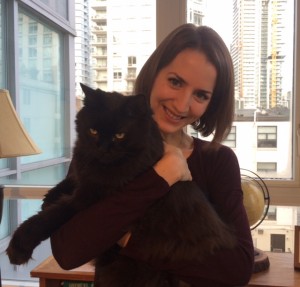[vc_row][vc_column][vc_column_text][printfriendly]
By Carolyn Digby
There is no one personality type that is more susceptible to developing an eating disorder than others. There are common characteristics that many, including myself, seem to share. Being a people pleaser was one that contributed to my past struggles.
I hated confrontation (and still do to an extent), and tended to stay silent when confronted with a situation that I strongly disagreed with. This stemmed from the fact that I had a low self-esteem, and didn’t feel that my opinions mattered. I’d then become frustrated with myself for not saying anything, then slowly become more and more resentful, until one day I would inevitably burst at the subject seemingly out of nowhere.
 I’m not perfect and still have people pleasing tendencies, but over time I’ve learned to become more assertive when faced with disagreements and in my everyday life. A huge part of that was becoming more confident in myself, and acknowledging that my thoughts and opinions are valuable and worth being heard. It’s no fun to be a doormat, and people can sense and take advantage of that.
I’m not perfect and still have people pleasing tendencies, but over time I’ve learned to become more assertive when faced with disagreements and in my everyday life. A huge part of that was becoming more confident in myself, and acknowledging that my thoughts and opinions are valuable and worth being heard. It’s no fun to be a doormat, and people can sense and take advantage of that.
While it may not seem like much, there are a few tweaks here and there that can really help boost your confidence and make you more assertive. It is amazing that the power of having a small boost of self-esteem can do; feeling more confident can transcend into multiple areas of your life, and even the smallest things matter.
With that, here are five quick tips to becoming more assertive:
-Hey XXX! I just was hoping that maybe you could send the assignment to me at some point tonight 😊 I needed it this afternoon to make some changes, but oh well. When you have a moment!
-Hey XXX, can you please send me the assignment tonight? I needed it this afternoon.
While B looks blunt, you get the message across and you will more likely be taken seriously. Another quick tip on this: anytime you find yourself wanting to say “but”, replace it with “and”. “But” is one of those words that can really rob your initial message; once a “but” is added, the person then only hears what follows.
Slight changes go a long way! As Amy Cuddy says in her TEDtalk, “Fake it ‘til you become it”.
[/vc_column_text][/vc_column][/vc_row][vc_row][vc_column][vc_empty_space][vc_column_text]
Carolyn went to the University of Victoria for psychology, and is currently working towards applying for a Master’s degree in the same subject. She hopes to uncover what sociological and personality aspects contribute to the development of eating disorders. Otherwise, Carolyn loves writing, drawing, travelling the world, and of course, her handsome cat.
[/vc_column_text][/vc_column][/vc_row]